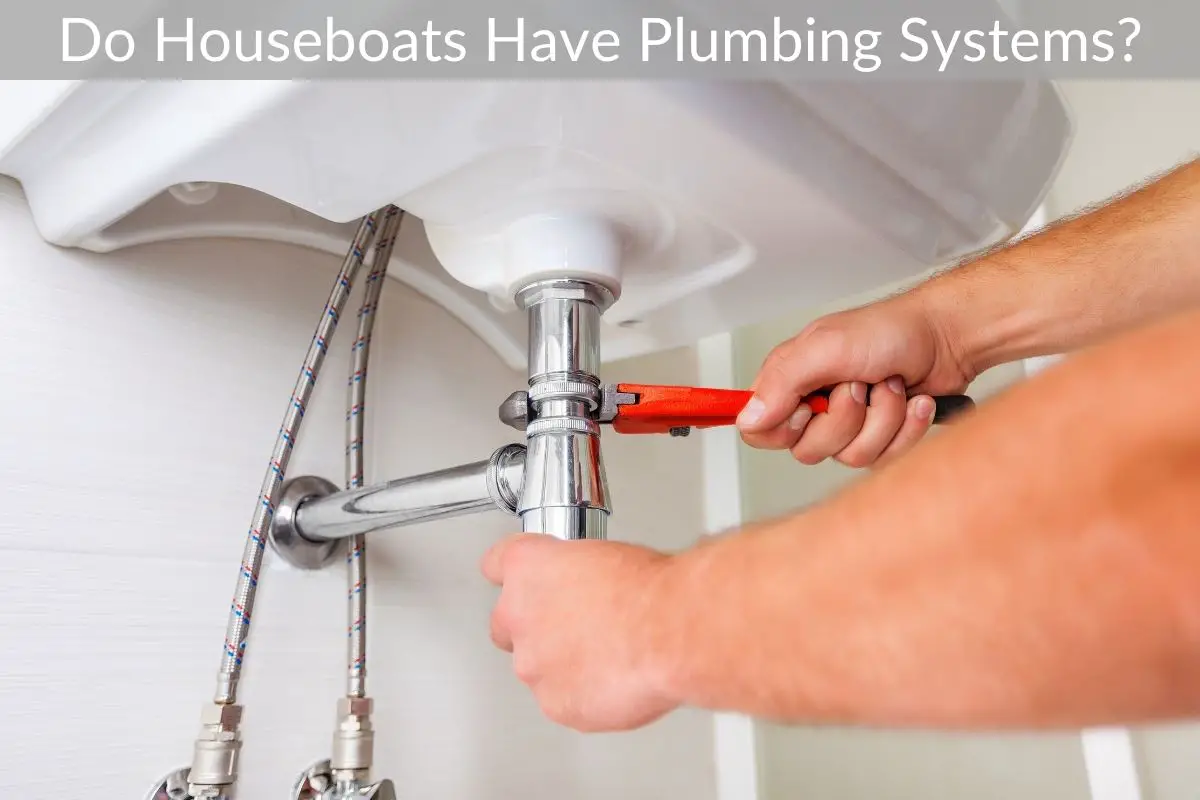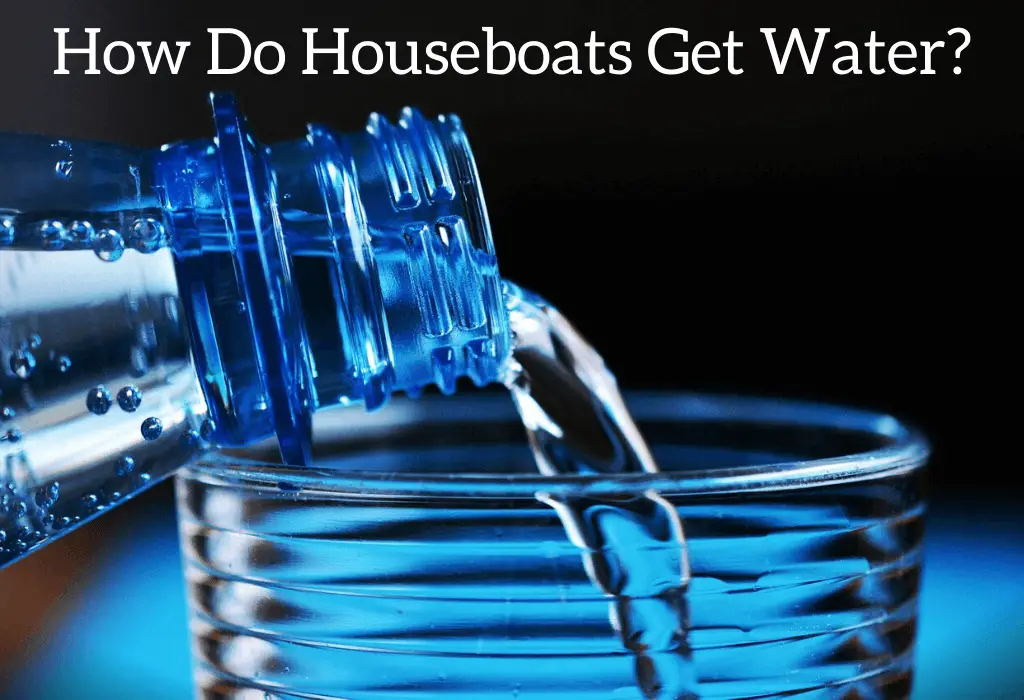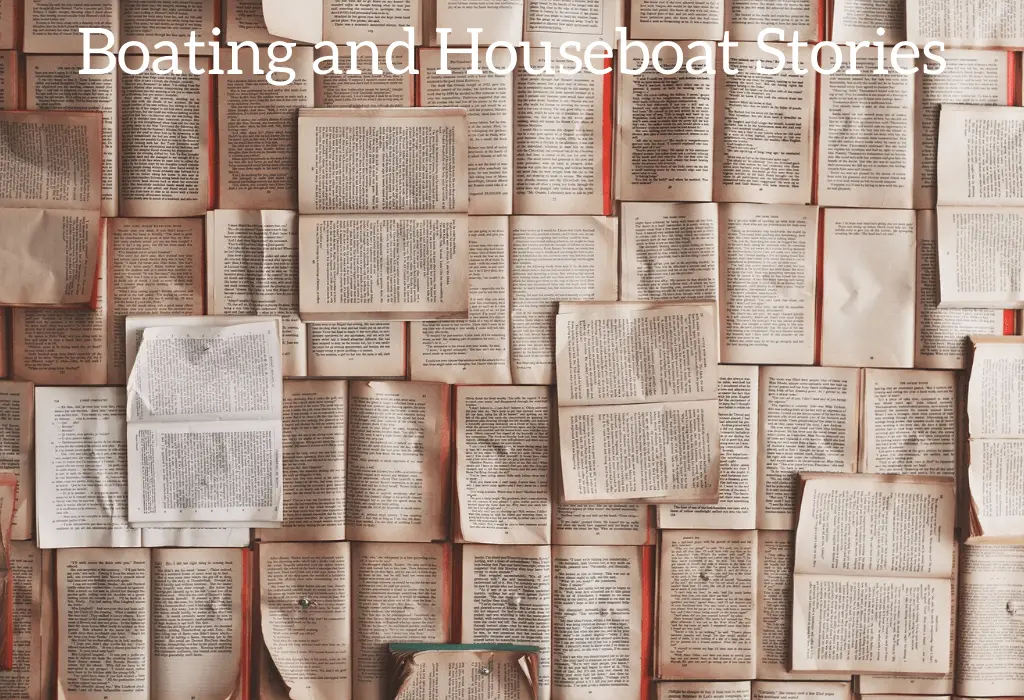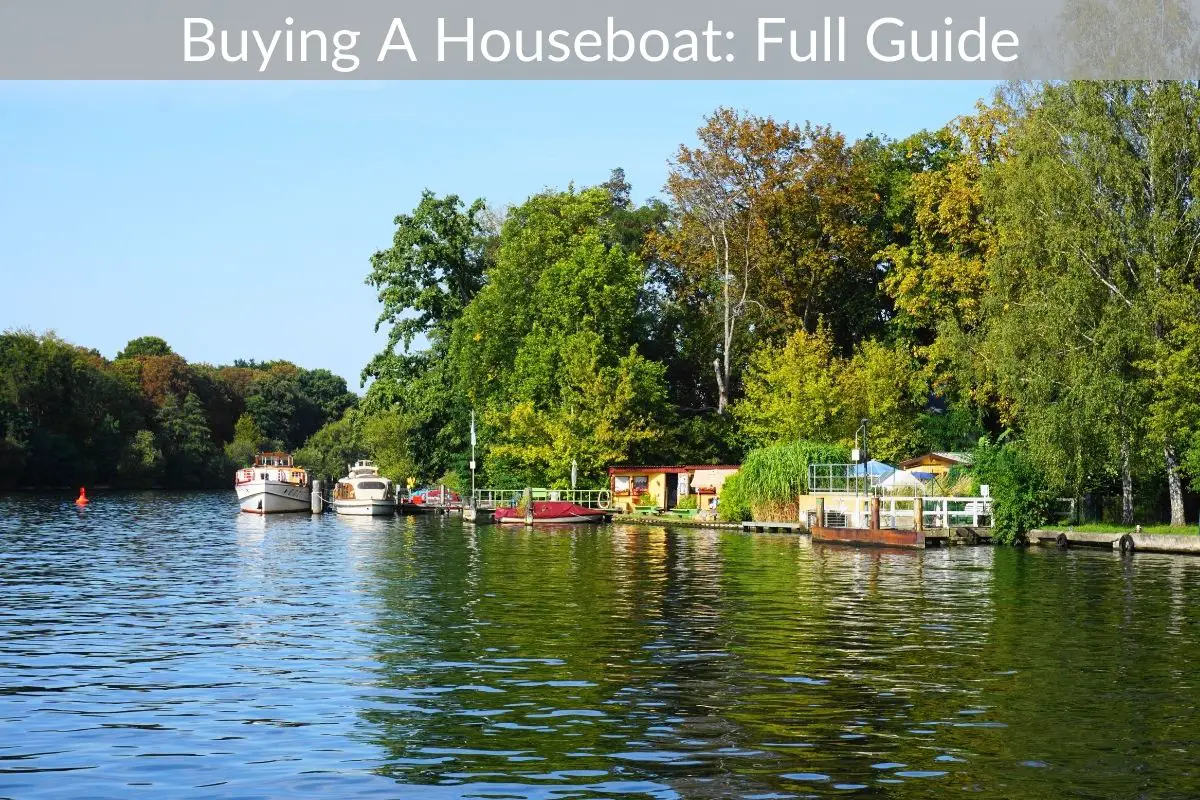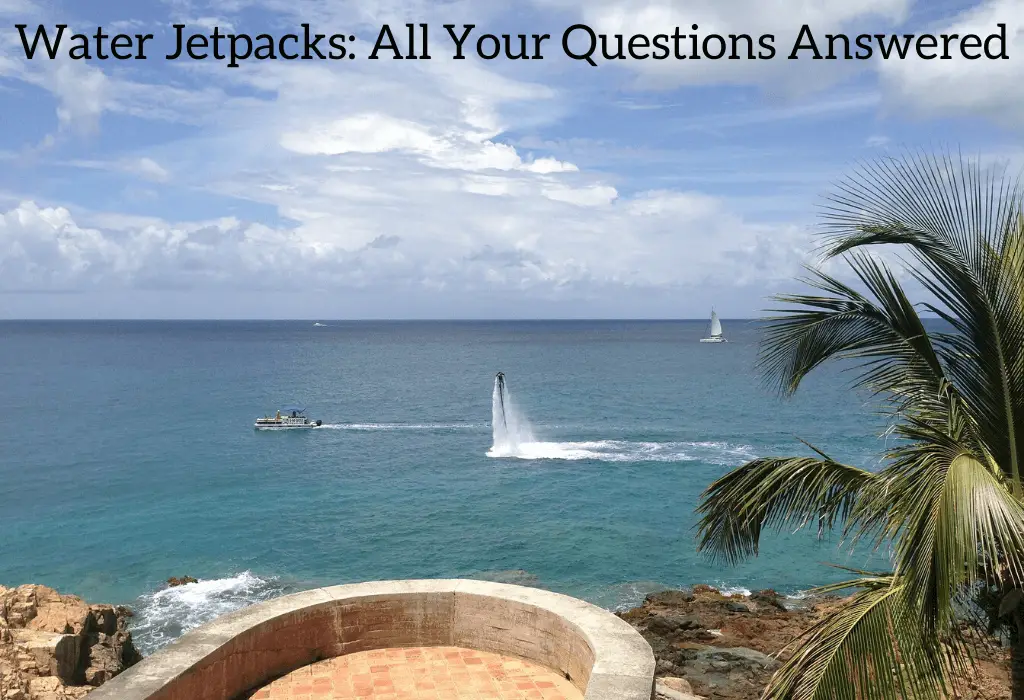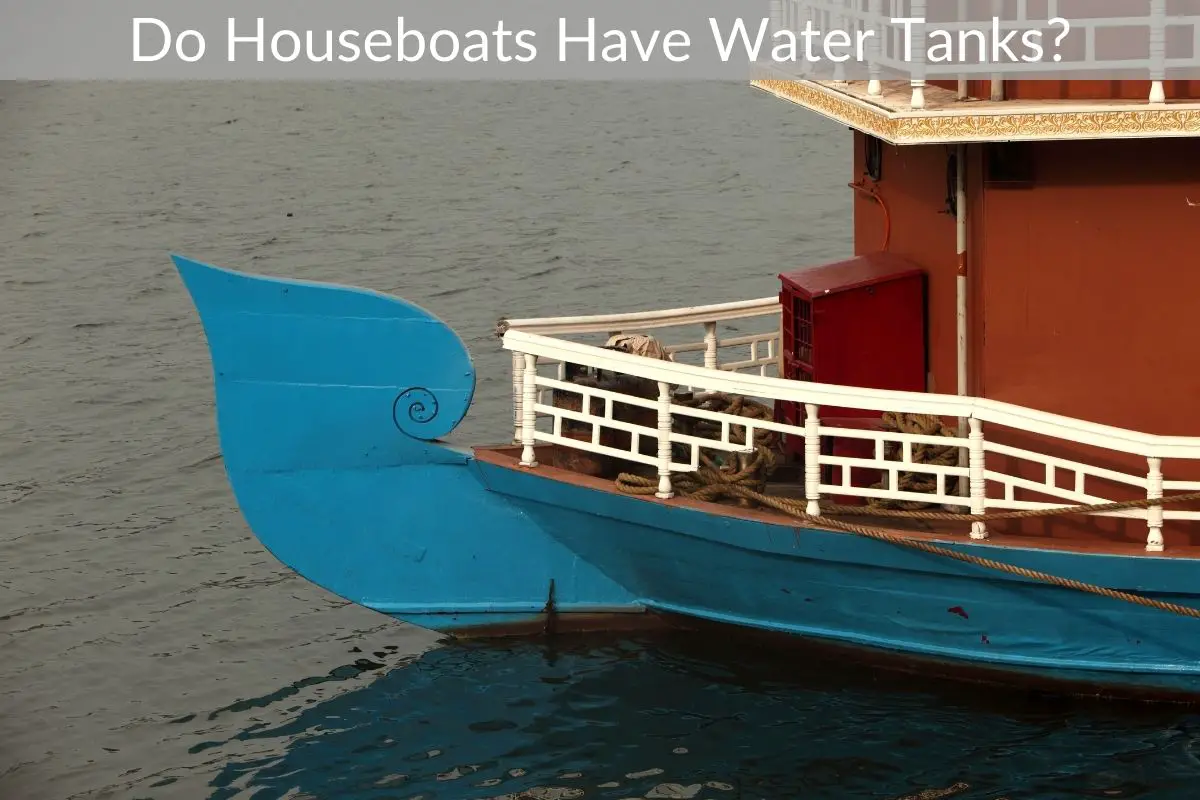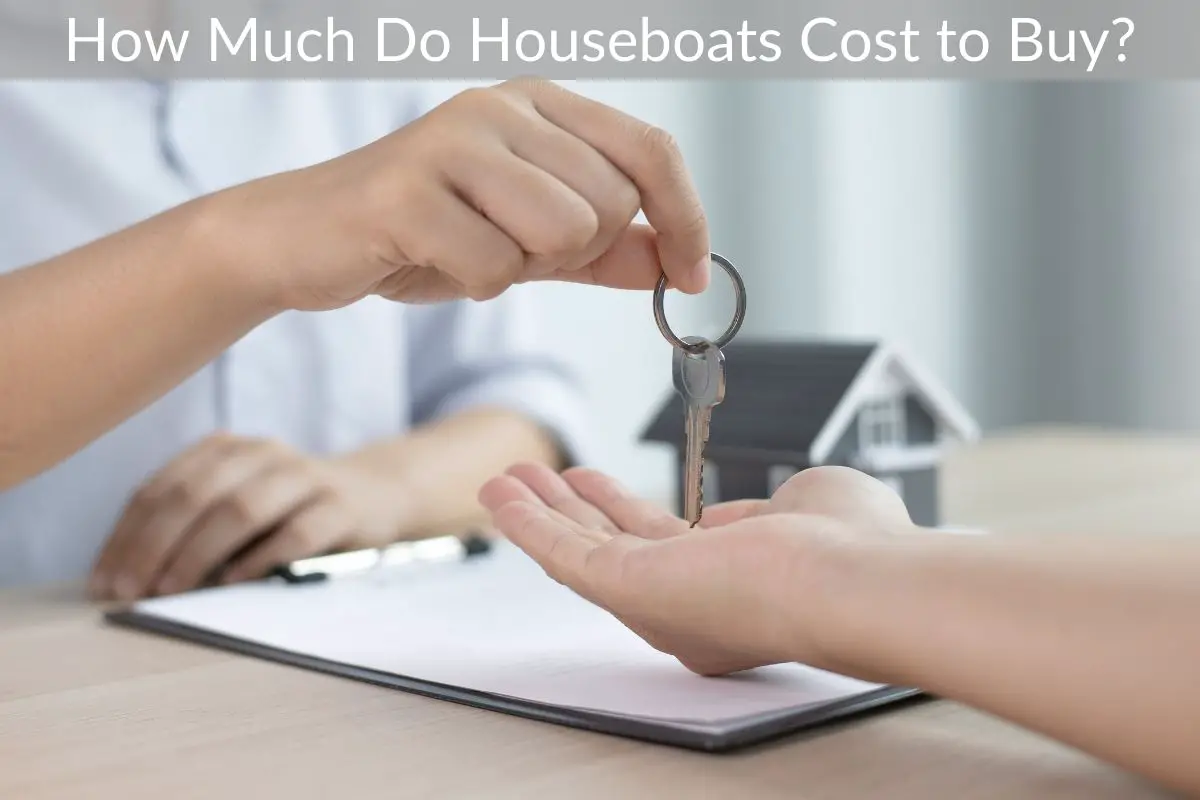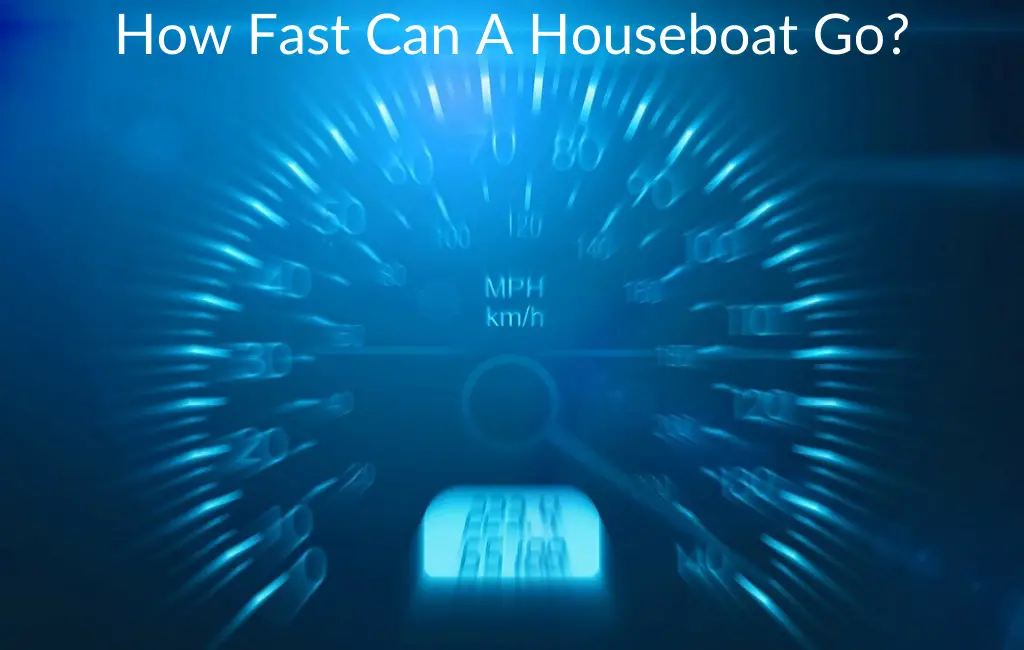*This post may contain affiliate links. As an Amazon Associate we earn from qualifying purchases.
If you have ever wondered how houseboats get water, you are not alone. Almost every boat owner has wondered the same thing. The freshwater tanks are a big part of their operation, but what about the waste water removal system? Electricity? Cable TV?
The answer is surprisingly simple.
Most houseboats will get their water pumped into water holding tanks when they are docked. These tanks are designed to last for days or weeks of use befire needing to be refilled again.
And the waste holding tanks? What about the waste water? Listed below are some of the things you need to know before you buy a houseboat.
Freshwater tanks
Most houseboats today have freshwater tanks to store water. They usually consist of PVC piping braided with polyethylene. Recent models have been made of polyethylene tubing for the same reason, but they’re easier to mount and repair. In addition to being cheaper, polyethylene pipes come in a variety of colors, making them easier to spot if algae or other muck is growing. Moreover, they’re FDA-approved and don’t contain any contaminants or chemicals.
Houseboats also have a pressurized water system that includes a freshwater tank and a gray water tank. The freshwater tank holds clean water for cooking, showers, toilets, and sinks. This means that fresh water must be used sparingly, since you’ll likely have to replenish the tank regularly at the marina.
Luckily, these tanks come with water hose connections. To fill them, simply attach one end of the hose to the tank connector, and the other end to the city water source.
Another way to keep water fresh is to use chemical products. Chemical products have many uses. Some remove smell and taste, while others sterilize water. Chlorine and iodine-based products are usually the best options. To treat water that is questionable, you can use home bleach. Simply add a couple of tablespoons of bleach to the tank, and let it sit for 30-60 minutes before using it.
Waste water removal system
Houseboats, as recreational vehicles, require a waste water removal system. A US Coast Guard-approved marine toilet will treat sewage before it is discharged. Unfortunately, many marinas don’t allow this. Another option is a holding tank system that will collect waste and remove it at a later date. This is a common solution for “Anchor Out” locations, although many large houseboat marinas have centralized systems.
There are several systems for disposing of waste water on houseboats. A standard marine toilet will use sea or lake water for flushing. It will connect to an outdoor water shower or hose to wash the boat’s deck, conserving fresh water. Another option is a self-priming marine toilet. The self-priming feature allows poop to be poured into the holding tank without contaminating fresh water. Composting toilets are also a good option for houseboats. Unlike standard toilets, they don’t require plumbing.
Houseboats have special sewage issues. Raw sewage from toilets can clog the sewage system. Toilets can contain large amounts of foreign objects, including paper towels and soiled clothing. Houseboat toilets have special back-flow designs to prevent flooding or sewage backup. Some are positioned above the water line so that they do not smell like sewage. They also have a back-flow prevention system that prevents sewage from backing up into the compartment.
Electricity
Electrical wiring for houseboats is a relatively new technology. In fact, houseboat wiring is still evolving, largely because of its complexity. It is vital to ask the factory where the houseboat was manufactured how the wiring was designed. Some changes can be detrimental to other systems. It is also important to record any changes made to the wiring diagram in the ship’s log. Fortunately, there are many sources of electrical power for houseboats, and you can start by researching a few.
Houseboats use a three-wire system, with a third wire serving as a ground fault breaker. Ground fault breakers interrupt current and protect the vessel and boater from electrical shock or fire. It is important to remember that ground fault breakers can trip for no good reason, so it is vital to keep them in good working order. You may experience nuisance trips if your houseboat is not grounded. If you experience frequent trips from your houseboat’s ground fault breaker, replace it immediately.
Houseboat owners should remember that they will have to pay for electricity in the dock fees. Electricity for houseboats is not as reliable as solar or wind panels, but it will still be sufficient for some purposes. If you plan to use electric appliances, make sure that you charge your batteries sufficiently. If you are traveling with the boat alone, you should consider solar panels and wind turbines, which can both provide plenty of electricity to keep your houseboat running.
Cable TV
Many people ask: How do houseboats get cable TV? Many people go boating as a way to disconnect from television and get away from the tv noise. Some people are so addicted to watching television that they don’t want to live without it, but others simply enjoy watching broadcasts on their boat. To enjoy cable TV on a houseboat, you can install a VCR or DVD player or use your laptop computer. To improve your signal strength, you can install a marine TV antenna.
Cable TV is the most popular way to get television on a boat, but it’s not the most flexible. Most marinas don’t distribute cable boxes, so their offerings are limited. Most cable services are limited to standard definition and unencrypted channels. This means that your choices for marine cable TV depend on the cost of the service and how far you’re willing to travel. But if you have an internet-enabled boat, you’re in luck. If you can install a cable TV box on the boat, you’ll be in business.
Wi-Fi
Cellular-based Internet is one of the most common options for houseboaters today, and the coverage and speeds have been constantly improving. Anyone with a cell phone has a cell phone, so setting up a basic mobile hotspot can be simple. But there are some disadvantages to using cell-based internet for houseboats. If you need fast, reliable Internet while on your houseboat, consider installing Wi-Fi.
The type of internet that you can use on a houseboat will depend on the particular boat. Some will have Wi-Fi access while others won’t. In either case, you’ll need to sign up for an internet plan from your marina. Typically, they’ll include a set amount of bandwidth, so you’ll have to choose a plan accordingly. But, if you’re looking for fast, reliable internet, you can sign up for a plan with a smaller provider.
While the internet is accessible on a houseboat, there are also a few issues that may affect its signal quality. The best solution for houseboat WiFi is a directional antenna that uses a fixed compass heading. Using a directional antenna will increase signal range and decrease signal loss. In addition, you can install WiFi antennas to boost the signal. You can then connect them with an ethernet cable to your houseboat’s router. A password-protected WiFi network is possible.
Dock space
Many people wonder how houseboats get water from dock space. Dock space is a must for houseboats because they often sit “parked” for extended periods of time. It is also necessary to hook up the houseboat to an electrical outlet, which allows you to run it without having to run the engine.
Many docks will not only have electrical hook ups but they will also have water and sometimes even sewage hook ups as well. This means that while your houseboat is docked you can use the water, electricity, etc. as you would like without having to worry about using too much and running out.

